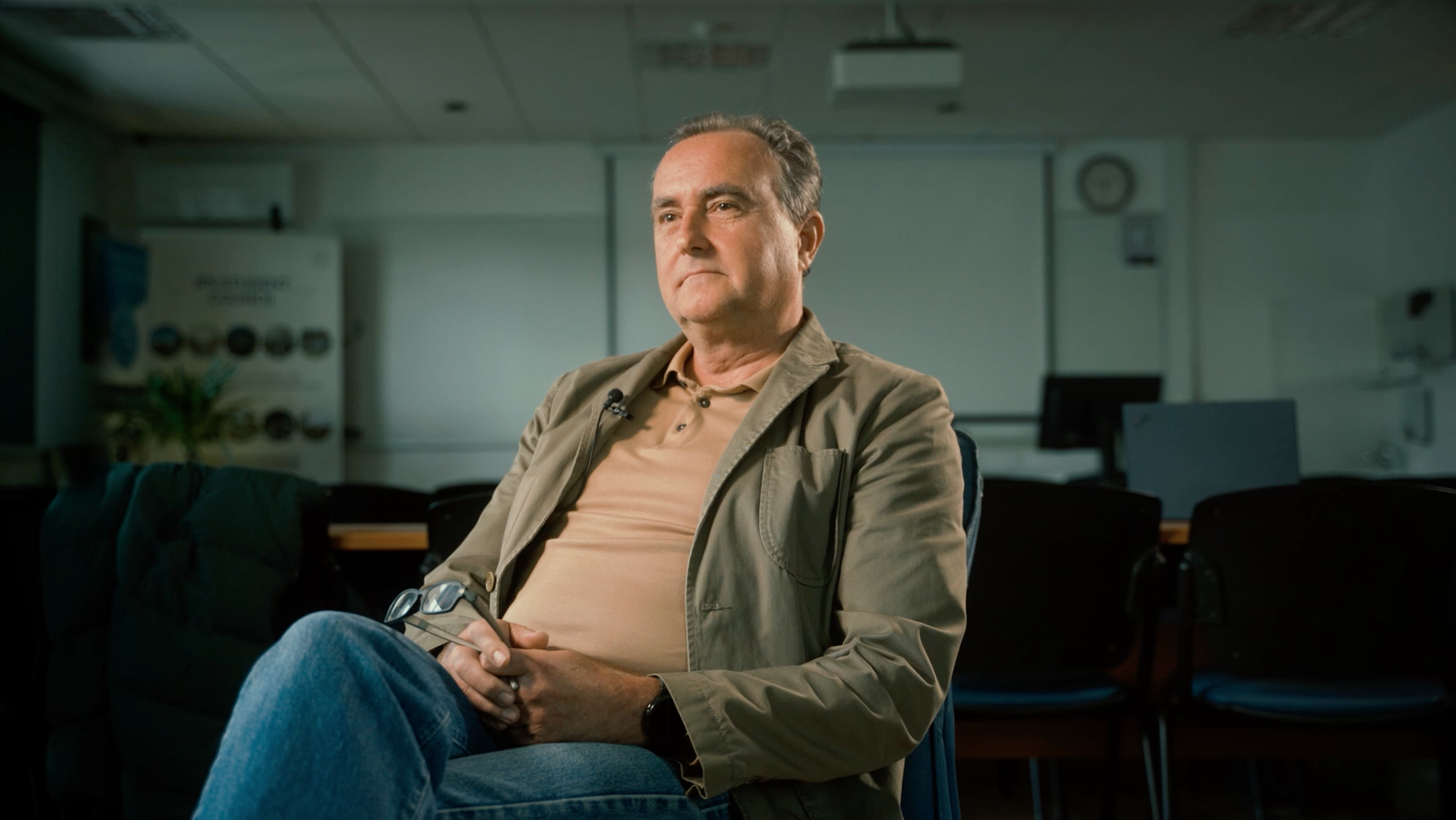This year, the Open Education for a Better World (OE4BW) programme brings together an inspiring network of 11 thematic hubs across five core areas: Education & Pedagogy, Sustainability, Health and Well-being, Artificial Intelligence and Youth Development. To highlight the incredible work happening within these hubs, we’re launching a special series of five Hub Spotlights — in-depth interviews with the coordinators leading each hub’s activities, projects and vision for the year ahead.
Kicking off the series, we’re excited to introduce Hub Youth, a vibrant community of young developers and mentors committed to creating impactful Open Educational Resources (OERs). Coordinated by Ervin Pfeifer, Hub Youth empowers young changemakers from around the world to design projects focused on digital literacy, sustainability, ethical AI use in education and more. This year, the hub includes seven innovative projects supported by participants from diverse countries, all united by their passion for learning and leadership.
Read or watch our full conversation with Ervin Pfeifer, where he shares insights into the projects, the challenges young developers face and the inspiring journey of Hub Youth within the OE4BW community.
You can watch the full interview on Videolectures website:
https://videolectures.net/videos/OE4BW2025HubSpotlight_pfeifer_ervin
Here’s the interview with Ervin Pfeifer, Hub Youth’s coordinator, in written form, on the 8th of May 2025.
How many projects are included in this year’s Hub Youth?
Ervin Pfeifer: This year, Hub Youth includes 7 projects.
How many participants are there, what are their ages and where do they come from?
Ervin Pfeifer: There are 9 developers coming from India, Vietnam and Slovenia and 6 mentors coming from Poland, Kazakhstan, Slovenia, The Netherlands, Malaysia and Finland.
What are the projects about and what form do they take?
Ervin Pfeifer: The projects explore a wide range of topics, including digital literacy, recycling, environmental awareness, sustainability, the ethical and effective use of AI in education, and learning English with the support of AI.
Do this year’s projects have any AI included and how?
AI is integrated into nearly all Hub Youth projects this year. Applications range from developing AI-powered, gamified learning platforms and creating guidelines for the ethical and responsible use of AI in education, to implementing AI tools that provide personalized suggestions and step-by-step support for tackling environmental challenges. Some projects also introduce Python programming as a foundation for understanding how AI works.
What are the plans for the Hub Youth this year, what sort of activities will there be?
Ervin Pfeifer: This year, Hub Youth will continue to encourage and support young people in developing meaningful Open Educational Resources (OERs) that address real-world challenges. These include digital skills, peer-to-peer learning, sustainable living and the responsible use of AI in education. We’re organizing webinars, workshops and mentoring sessions, culminating in a presentation of project outcomes at Eduscope, the annual OE4BW conference.
Can you tell us about your past experience leading Hub Youth?
Ervin Pfeifer: Leading Hub Youth has been incredibly rewarding. Both high school and university students are supported in turning bold ideas into meaningful OER projects. Over the past five years, we’ve seen significant growth of the hub. We’ve supported around 20 projects, involving nearly 60 developers and mentors from various countries.
What sort of challenges do young people have in developing the OER projects? How do you help them solve these challenges?
Ervin Pfeifer: The biggest challenge for youngsters is stepping into a leadership role—a core element of our mentoring programme. Young participants must go beyond having a good idea; they should elaborate the idea, design the activities, plan and manage the project: what to do, how, with whom and when. Project management at their age can be very demanding. Another challenge is choosing the right tools—whether digital platforms or social media etc. Later on, public presentation can become a hurdle, although our community is very supportive. Throughout the process, our experienced mentors guide participants step by step, helping them navigate obstacles and develop their projects successfully.
Can you tell us some anecdotes from Hub Youth from the past years?
Ervin Pfeifer: There are many great stories—our mentors could tell you plenty. One that stands out is from a project I mentored: a youth-friendly mobile app for sustainable living, supported by AI. The group paid close attention not only to content but also to visual identity—logo, brand name, project colours. They named it Green Button Journey. As a physical token, they created small wooden green buttons painted with eco-friendly colours and gifted me one. I still wear it on my backpack every day.
Why does the OE4BW programme also include youth?
Ervin Pfeifer: Meaningfully involving young people in the development of educational content is essential from the OE4BW perspective. By empowering them to take on active roles as co-creators, we not only ensure that the content is relevant and engaging, but also foster a sense of ownership, responsibility, and agency in their learning journey. This participatory approach helps bridge the gap between educators and learners, making education more inclusive, responsive, and aligned with the actual needs and perspectives of youth.
Was youth included in the programme since the beginning?
Ervin Pfeifer: The Youth Hub was first introduced to the OE4BW program in its third year, in 2021.
Why is it important to include youth in the open education sphere and OER development?
Ervin Pfeifer: It is essential to include young people in the development of educational content, especially since this content is ultimately designed for their use. Empowering youth to actively participate as co-creators ensures that their voices, experiences, and perspectives are reflected in the learning materials. This not only makes the content more relevant, engaging, and effective, but also cultivates a sense of ownership and responsibility among young learners. Involving them in this way fosters critical thinking, creativity, and collaboration, while promoting inclusive and learner-centered education systems that truly address their needs and aspirations.
What value does the OE4BW mentoring programme bring to young people involved in it?
Ervin Pfeifer: The most important value is the chance to step into the role of a leader. These young people are our future changemakers. Through collaboration with mentors and peers, they build self-confidence. And when their projects begin to make an impact, it’s incredibly rewarding. OE4BW is all about impact—we aim for our projects to make a difference on a global scale.
Can you give an example of a past youth project that turned out very successful because of the programme?
Ervin Pfeifer: There are several. All the projects that reach the final presentation at the end of the programme are successful. For instance, one focused on nurturing entrepreneurial mindsets among peers, encouraging young people to become entrepreneurs. Another addressed digital well-being and sustainable health, helping youth rethink their daily tech habits. And then there’s Green Button Journey, a multi-year initiative that promotes sustainable living in a way that resonates with young audiences.
How do young people contribute to the innovations in education within the OE4BW programme?
Ervin Pfeifer: I was amazed how much I learned from them. One major innovation they bring is peer-to-peer teaching. They design OERs that speak directly to their peers—through language, approach, and tools that feel natural and engaging. This benefits not just the wider community, but also mentors and coordinators. Their contributions really enrich the programme.
Can you tell us something about yourself, what do you do when you don’t work for OE4BW?
Ervin Pfeifer: I’m a mechanical engineer at heart, though I also hold a PhD and an MBA. My professional work revolves around innovative projects in the fields of energy and the environment. In my free time, I enjoy hiking, swimming, and skiing—but I’m always thinking about how to make the world a more supportive space for young people to thrive.
Why have you decided to join OE4BW?
Ervin Pfeifer: It started with a conversation with Mitja Jermol, one of the programme’s co-creators. He explained the purpose and approach of OE4BW, and I was immediately drawn in. I began as a mentor, and after a few years, I took on the role of Hub Youth coordinator.
How many years have you been part of the OE4BW community?
Ervin Pfeifer: This is my fifth year—starting as a mentor and now coordinating the Hub Youth.
What does your work for the Hub Youth involve?
Ervin Pfeifer: Together with our mentors, I support every developer from the beginning to the end of their project. I also work to create a positive, collaborative community atmosphere. When challenges arise—technical or otherwise—I coordinate with mentors and the broader programme team to offer solutions, such as pairing a developer with a co-mentor with specific expertise. My role includes both administration and content support.



